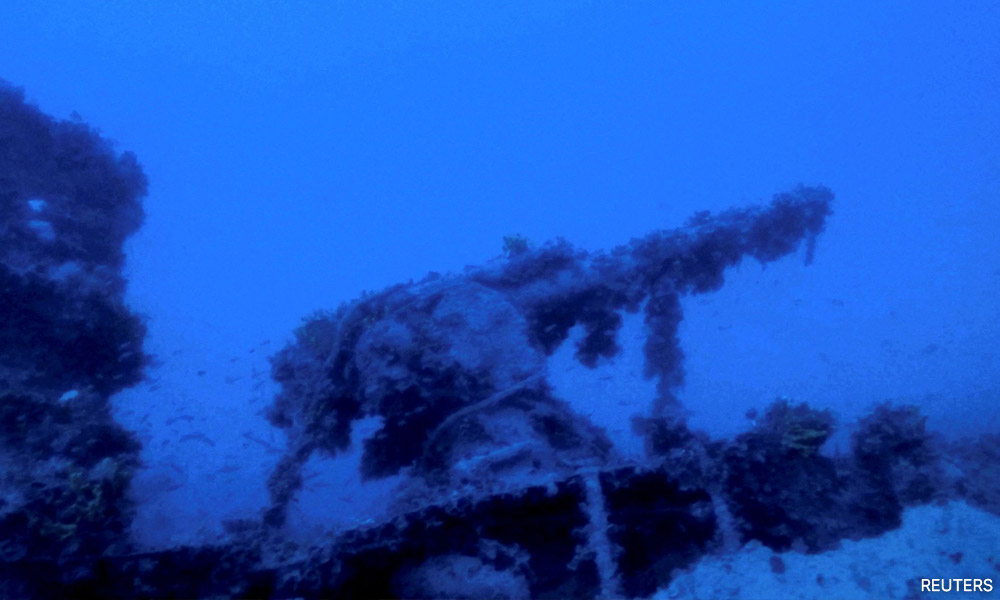The recent surge in risky underwater salvage operations conducted by Malaysian companies potentially in collaboration with international syndicates, is very concerning, especially for the preservation of nature and the historical significance of these wrecks.
With such wrecks predominantly located in environmentally sensitive aquatic habitats, it is disheartening to witness a lack of commitment to protecting our waters from these groups.
Understandably, politicians have displayed failures in these matters so far but government agencies with enforcement powers don’t seem to have the protection and preservation of nature at heart - when operations such as these are allowed in our waters.
It is with great concern that we are highlighting the importance of monitoring and the required transparency in awarding approvals for these operations.
And we call for a more responsible approach to safeguard our natural and historical underwater treasures.
Shrouded in secrecy
Who is currently monitoring the activities of these metal pirates at World War II (WW II) wreckage sites?
The presence of federal enforcement bodies such as the Marine Police, Department of Environment (DOE) and Marine Department should be instrumental in ensuring the preservation of these sites.
The secrecy surrounding these operations demands a comprehensive investigation into the motives behind such confidentiality.
We, at Pertubuhan Pelindung Khazanah Alam (Peka Malaysia ) and the people deserve to know why the protection and preservation of these wrecks are not given the importance it deserves.
Environmental risks
Are these groups truly qualified to conduct salvage operations without posing environmental risks to our islands and pristine beaches, which attract countless tourists that generate income for both state and federal governments?
Under which ministry are these companies registered as contractors and being monitored?
The potential for pollution resulting from these operations raises serious doubts about the sustainability of this industry.

Environmental and marine enforcement agencies must play a proactive role in assessing the capabilities and environmental impact of these salvage operations to ensure the long-term well-being of our marine ecosystem.
Economic returns
While the income generated from salvage operations, if any, may contribute to state and federal coffers, it is crucial to evaluate whether this financial gain truly justifies the potential environmental consequences and the loss of historic marine sites.
Additionally, the lack of studies by the Museum and Antiquities Department on the WW II wreckages, including registering their locations and gazetting these sites as historical properties of the nation, is deeply concerning.
Unexploded ordinances
The possible presence of unexploded live ordinances within these wrecks poses significant threats once the salvage operations are complete.
It is imperative to address which department is monitoring and ensuring that these dangerous WW II naval weapons are not smuggled out from the country for terrorism activities or sold on the black market as rare collector’s items.
A robust security framework must be established to ensure the safeguard against such misuse of these hazardous remnants.
Disappointing incompetency
The disappointing display of incompetency at both the state and federal levels regarding the protection of these historical sites must be immediately and seriously addressed.
This is to avoid unnecessary costs of pollution clean-up and irreparable damage to both our coastal and marine natural environment.
Rather than allowing these wrecks to be plundered for profit, the approach to preserve them as diving sites for tourists and artificial reefs for marine species would be lauded by Malaysians.
We would also support laws to be enacted for the same purpose.
By doing so, we can strike a balance between national historical treasures preservation, sustainable tourism and ecological conservation. - Mkini
DAMIEN THANAM DIVEAN is the president of the non-profit NGO, Pertubuhan Pelindung Khazanah Alam (Peka Malaysia).
The views expressed here are those of the author/contributor and do not necessarily represent the views of MMKtT.




No comments:
Post a Comment
Note: Only a member of this blog may post a comment.